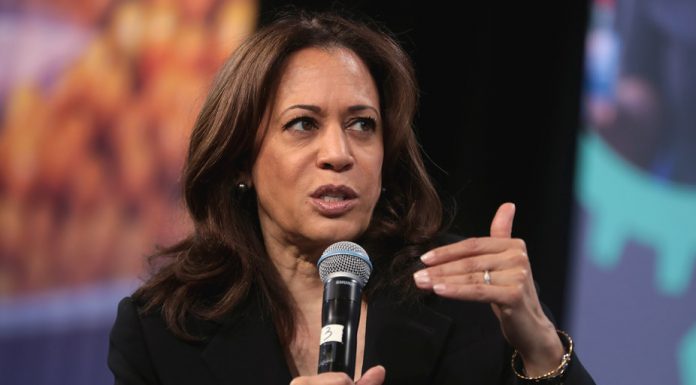The Supreme Court on July 1 rejected the “facially unconstitutional” effort by former California Attorney General Kamala Harris to pry donor names and contact information from non-profit organizations, according to the Washington Times.
Harris threatened to fine or revoke non-profit status from two conservative groups — the Thomas More Law Center and the Americans for Prosperity Foundation — but they resisted and won.
The Supreme Court ruled 6-3, with Chief Justice John Roberts writing the majority opinion, that Harris had no need for the information as it related to her post.
Roberts noted that California selectively applied the disclosure policy.
“The need for up-front collection is particularly dubious given that California — one of only three states to impose such a requirement — did not rigorously enforce the disclosure obligation until 2010,” he wrote.
The court’s ruling upholds the rights to free speech, free association, and privacy without fearing punishment from government or violence.
The lawsuit began with Harris in 2012, but California Attorney General Rob Bonta—who Gov. Gavin Newsom appointed in April—fought the final stage in the six-year legal battle.
California had a charitable donor discloure policy for years, but the state’s attorney general’s office did not enforce it until Harris’s tenure.
Her office sought unredacted copies of Form 990 Schedule B, which identifies donors, their contributions, and their contact information.
“They had a regulation in the attorney general’s office that they could request information of our 990s,” said Richard Thompson, president and chief counsel of the TMLC.
“They routinely asked for that information, and we routinely refused to give it to them, and it was only in 2012 that they started to ask it in more insistent tones,” he continued. “So at some point, they decided they wanted to make us an example.”
Mike Brownfield, communications director at the Arizona-based Goldwater Institute, said in a tweet that the disclosure policy threatened the right to free speech and exposed donors to “threats of violence.”
Nonprofit groups feared backlash after Harris’s office posted 1,800 Form 990 Schedule B forms onto the public attorney general’s website.

